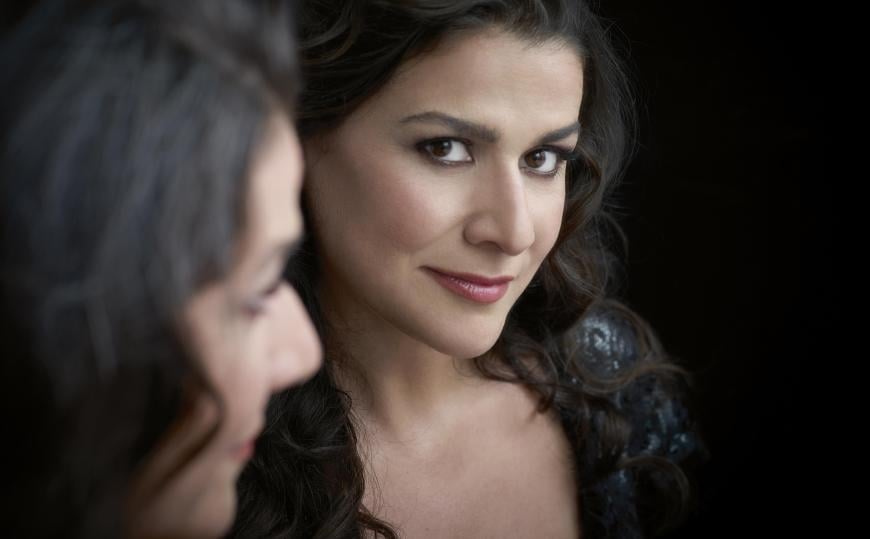
Cecilia Bartoli released her 19th solo album, Mission, last week. Of course, it is expected to do very well for Decca: The Italian mezzo-soprano is at the height of her artistry and has a wide fan base willing to follow her journeys into fantastic repertoire.
So, we thought we'd take the opportunity to look back at her career with this playlist. Enjoy the incredible singing. A few notes on the individual tracks are below.
-
Bach-Gounod, Ave Maria: Probably the only track on this playlist that needs no introduction. One of the most loved melodies in classical music.
-
Mozart, “Laudate Dominum” from Solemn Vespers Service, K. 339: Bartoli broke into the big time singing Mozart, Rossini, and Handel. Here's why: This beautiful melody shows off the breath control and instantly recognizable sound that Bartoli has always commanded.
-
Nicola Porpora, “In braccio mille furie” (In the arms of a thousand furies): Bartoli's 2009 album Sacrificium was devoted to arias written for the great castrato (surgically altered male soprano) singers of the 17th and 18th centuries. This “rage aria" in an up tempo gives us the gutsy Bartoli with flurries of notes delivered with finesse but also emotional urgency.
-
Christoph Gluck, “Di questa cetra in seno” (This harp in my breast): One of Bartoli's earliest solo albums to foray into the under-appreciated music of the 18th Century, Dreams and Fables (2001) introduces us to a great composer who we never knew was such a great melodist.
-
Mozart, “Là ci darem la mano” from Don Giovanni: From Bartoli's duet album with the great bass-baritone Bryn Terfel, this song is one of the high points in operatic history: The slick, rich, high-born Don Juan takes advantage of his superior position to seduce Zerlina, a peasant on his estates, who resists but is way out of her depth.
-
Handel, “Lascia, ch'io pianga” (Let me weep) from Rinaldo: One of the most famous arias Handel ever wrote, from his first opera for London. The Bartoli recording was one of her early hits as well.
-
Vivaldi, “Il trombe guerriere” (The warlike trumpet): Heroic sentiments from a composer who, until recently, was not associated with opera. Bartoli's Vivaldi album, from 1999, was an early entry in that revival. More flash from a singer who deals pretty effortlessly with the demanding vocal runs in this piece.
-
Schubert, La pastorella, D. 528: Off of an early album with the pianist Andras Schiff, Bartoli makes the most of this Schubert gem. A famous song composer, Schubert was enthralled by Rossini's music in the late 1810s, and this song is one of the results.
-
Maria Malibran, “Prendi per me sei libero”: Bartoli's 2007 album Maria celebrates a famed early 19th-century singer. Her father was the great tenor and singing teacher Manuel Garcia, and she was a meteor in the Italian operatic firmament. For a performance of Donizetti's comic opera, L'Elisir d'amore, Malibran wrote her own aria and inserted it in the performance. It's a charming piece in which the character Adina gives the knuckleheaded Nemorino the money to buy his way out of the army enlistment into which he has blundered.
-
Rossini, “Non più mesta” from La Cenerentola: The finale of Rossini's opera, Cinderella, wraps everything up in a big bow. One of Bartoli's most durable hits, it’s the perfect marriage of lyrics and the mezzo-soprano's sunny performing persona. No more sadness, for sure.

